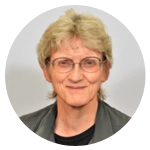Are you an autistic adult?
See how you can prepare for your eye examination:
Patient resources.
Are you an eyecare provider?
See our recommendations on how you can provide autism-friendly services
Eyecare provider resources.
Project background
Sensory issues have a severe impact on the lives of many autistic people and their ability to communicate and function, leading to stress and anxiety.
Our project aimed to better understand vision and eye conditions in autistic adults who do not have learning disabilities.
To achieve this, we conducted a number of studies that included focus groups, interviews, online questionnaires and eye examinations with autistic adults. The studies took place between September 2018 and December 2021 as part of Ketan’s PhD project.
The eye conditions we investigated included:
- visual sensory issues (or hypersensitivity/ sensory overload);
- problems with level of vision;
- the need for spectacles;
- issues with the coordination of the eyes (for example, a lazy eye).
Why was this project important?
If not treated correctly, eye conditions affect a person’s quality of life. Research suggests that, among autistic people, there are more people who need spectacles and experience eye coordination problems.
However, the majority of existing research focuses on autistic children with learning disabilities rather than the population of autistic people as a whole.
Vision problems are common among people with learning disabilities so, from this existing research, it is difficult to determine whether autism is specifically related to eye conditions. We therefore needed to do research to understand if certain eye conditions are more common in autistic adults without learning difficulties.
What were the aims of this project?
This project aimed to:
- find out which visual issues and symptoms are experienced by autistic adults;
- investigate how treatment impacts vision, visual symptoms and quality of life;
- develop guidelines, training and changes in policies for optometrists to make eye examinations and practice environments more autism-friendly.
Our studies
We conducted 3 studies with a total of 364 autistic adults:
- Study 1 – focus groups: To understand how eye conditions impact autistic adults’ daily lives and discussing their experiences of eye examinations.
- Study 2 – online questionnaire: To investigate whether anxiety is a barrier to accessing eye examinations for autistic adults.
- Study 3 – eye examinations and interviews: To describe eye conditions (for example, a requirement for spectacles, variations in eye muscle balance and perceptual issues) in autistic adults. To explore how eye examinations can be made more autism-friendly.
Read more about our studies.
Meet the team
This study was carried out by members of the Body, Eyes and Movement (BEAM) lab and the Division of Pharmacy and Optometry in the Faculty of Biology, Medicine and Health, The University of Manchester, along with an expert advisory team of autistic people.
Our team members
Ketan Parmar
 Ketan is a fully qualified optometrist. He graduated in 2018 with a master’s degree from The University of Manchester and began his PhD in September 2018.
Ketan is a fully qualified optometrist. He graduated in 2018 with a master’s degree from The University of Manchester and began his PhD in September 2018.
He also works in practice, supervises undergraduate students and is a research assistant. His research interests stem from working with academics and influential individuals in the field of optometry in his pre-registration year. He wants to conduct research that will impact current optometry practice.
Dr Emma Gowen
 Emma is a Senior Lecturer at The University of Manchester who co-directs the Body Eyes and Movement (BEAM) lab, researching sensory motor control in autistic adults.
Emma is a Senior Lecturer at The University of Manchester who co-directs the Body Eyes and Movement (BEAM) lab, researching sensory motor control in autistic adults.
She is a keen advocate of participatory research, with much of her research benefitting from involvement and co-partnership of the autistic community. She also chairs the Autism@Manchester network.
Professor Chris Dickinson
 Professor Chris Dickinson is Professor of Clinical Optometry. Chris’s main research interest is in low vision, and how individuals with low vision can be helped in their everyday life.
Professor Chris Dickinson is Professor of Clinical Optometry. Chris’s main research interest is in low vision, and how individuals with low vision can be helped in their everyday life.
Her work often involves investigating the effectiveness of different types of visual aids.
Dr Catherine Porter
 Dr Catherine Porter is a Senior Lecturer in Optometry at The University of Manchester where she teaches binocular vision and further investigative techniques. Her PhD was entitled An Investigation of Reading in Dyslexia and she continues to have a specialist interest in patients with reading difficulties, binocular vision problems and those with visual stress.
Dr Catherine Porter is a Senior Lecturer in Optometry at The University of Manchester where she teaches binocular vision and further investigative techniques. Her PhD was entitled An Investigation of Reading in Dyslexia and she continues to have a specialist interest in patients with reading difficulties, binocular vision problems and those with visual stress.
She has presented workshops and lectures nationally and internationally on clinical aspects of binocular vision, and has authored several continuing education and training articles on the same topic.
Peter Baimbridge
 Peter Baimbridge is an autistic adult with a career in technical sales and marketing and business management. Since diagnosis in 2011 he has created Salford Autism, a unique autism support group led and run by people with their own diagnosis of autism. The group works in the community with all types and ages of autistic people and their families to achieve effective solutions to the practical problems they experience living with autism.
Peter Baimbridge is an autistic adult with a career in technical sales and marketing and business management. Since diagnosis in 2011 he has created Salford Autism, a unique autism support group led and run by people with their own diagnosis of autism. The group works in the community with all types and ages of autistic people and their families to achieve effective solutions to the practical problems they experience living with autism.
Peter joined Autism@Manchester in 2015 to add a voice for the autistic population and inform research from his own unique perspective and personal experience, as well as his experience of the problems of others.
In 2016, he became Coordinator of Autism@Manchester and was acknowledged by The University of Manchester as an honorary visiting academic. Peter was diagnosed with diabetes in early 1992 and so has had annual eye checks at a local optician’s practice since then.
James Pelham
 James Pelham was diagnosed with autism in April 2015 at Sheffield Adult Neurodevelopmental Service.
James Pelham was diagnosed with autism in April 2015 at Sheffield Adult Neurodevelopmental Service.
Since then he has immersed himself in study about autism and has taken part in many research trials, in the hope that it will improve life for other autistic people.
He holds a joint honours degree from The University of Manchester in French and Russian and several diplomas in music performance and theory.
James is an active performer and composer. He is also a Director on the board of Autscape, an autistic-led organisation which provides retreats and conferences for autistic people.
Contact us
If you have any questions, please get in touch.
Ketan Parmar
Email: ketan.parmar@manchester.ac.uk
Dr Emma Gowen
Email: emma.gowen@manchester.ac.uk
